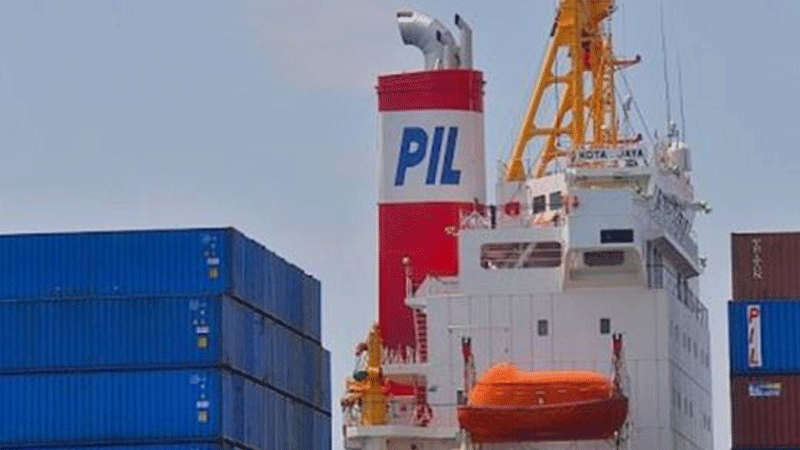Pacific International Lines (PIL) is pleased to announce the launch of two new initiatives, which would further enhance its operational efficiencies and strengthen the capabilities of its sea crew in navigation safety.
1) PIL Centre for Maritime Efficiency (CME)
The first initiative launched is the opening of its new Centre for Maritime Efficiency (CME). The key role of CME is to enable PIL to grow its competencies in managing ship and fleet energy-efficiency performance as part of PIL’s commitment to lowering its carbon footprint.
Helmed by a team of seven with extensive seafaring experience and leveraging on digitalisation, the CME’s responsibilities include traffic optimisation and route analysis aimed at minimising energy usage by PIL’s fleet. The CME will be equipped with a state-of-the-art digital system that houses all relevant operational data and applications in a single platform to facilitate comprehensive, centralised and efficient coordination.
With the new CME, PIL will be able to reap the following benefits:
- Reduction of greenhouse gas (GHG) emissions generated from its operations
- Enhanced fleet safety and security
- Maximisation of cost-effectiveness through efficient traffic and route-based management of PIL’s fleet
- Provision of more training berths for our seafarers and creating a bridge for a ship-to-shore career path
Mr Lars Kastrup, CEO, PIL, said, “The rolling out of this new Centre for Maritime Efficiency is timely as we forge ahead to become a more efficient shipping line committed to reducing our carbon footprint. This is also aligned with our aim to better leverage technology and digitalisation in our operations for enhanced operational effectiveness. At the end of the day, we aim to deliver quality service and good connectivity to our customers, who are increasingly expecting container shipping services to be nimble and flexible to meet their evolving needs.”
2) MoU with the Centre of Excellence in Maritime Safety
With the safety and security of its people as a top priority, PIL is pleased to ink a Memorandum of Understanding (MoU) with Singapore Polytechnic’s Centre of Excellence in Maritime Safety (CEMS) to collaborate on a “Training with Technology” project.
This project aims to leverage the latest technologies to enhance the competency of seafarers in safe navigation through technical and soft skills training. By imparting our future seafarers with soft skills like situational awareness and decision-making skills, the risk of incidents would be greatly reduced. PIL and CEMS will jointly explore the effectiveness of using immersive, simulation and remote technology to deliver safety-related and ship navigation training in demanding traffic and sea states. The data and knowledge collected from this project will be utilised for research and collaboration between the two partners towards the objective of strengthening the standards of maritime safety.
“PIL is indeed pleased to collaborate with Singapore Polytechnic, a leading institute of higher learning in maritime education and training. We have over 4,000 seafarers working with PIL and their safety, health and wellbeing are of utmost importance to us. The long-running pandemic has also made us more cognizant of the crucial role that seafarers play in ensuring the smooth running of the global supply chain. We are confident that this partnership with Singapore Polytechnic will contribute towards strengthening our seafarers’ ability to conduct safe navigation and operations,” commented Mr Kastrup.
Ms Georgina Phua, Deputy Principal (Development), Singapore Polytechnic, said, “With the maritime industry facing rapid changes led by growing technological developments, there is increasing demand for competent and skilled seafarers who can navigate unpredictable environments with confidence and precision. Through this strategic capability-building partnership, our Centre of Excellence in Maritime Safety (CEMS) will team up with Pacific International Lines to leverage on our combined extensive domain knowledge and expertise in the maritime sector to conduct and deliver meaningful research into technology-enabled navigational and operational safety training for our seafarers. By equipping them with the necessary tools, knowledge and autonomous technologies to safely manoeuvre highly volatile conditions, we will raise the standard of maritime safety for the larger maritime community.”









